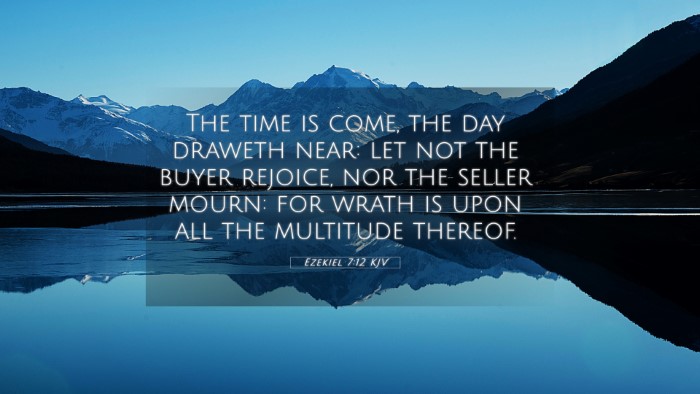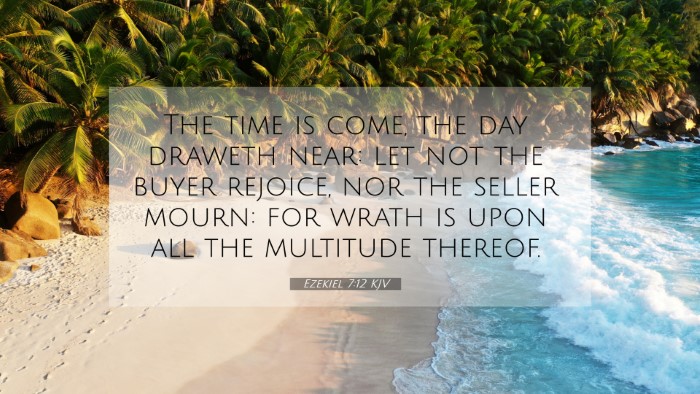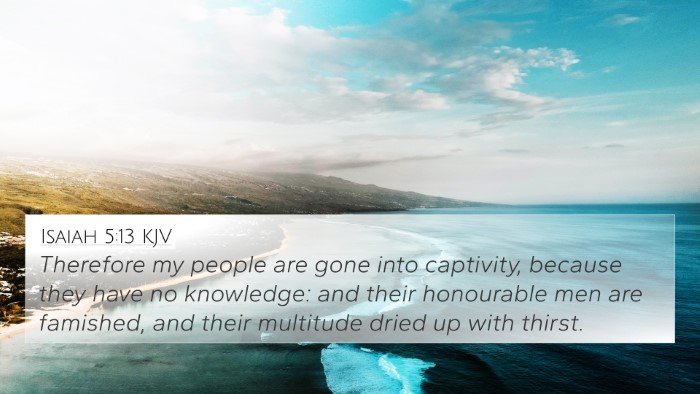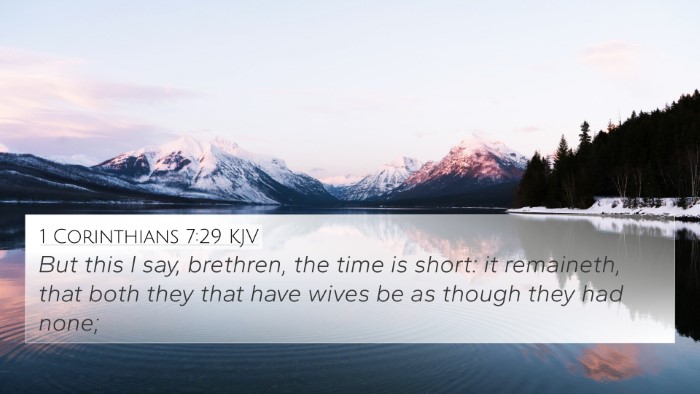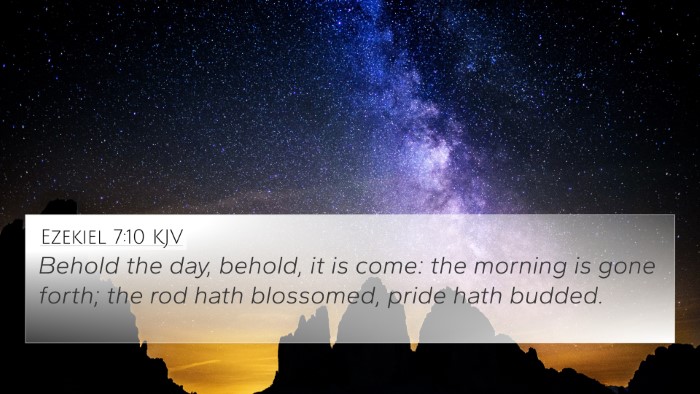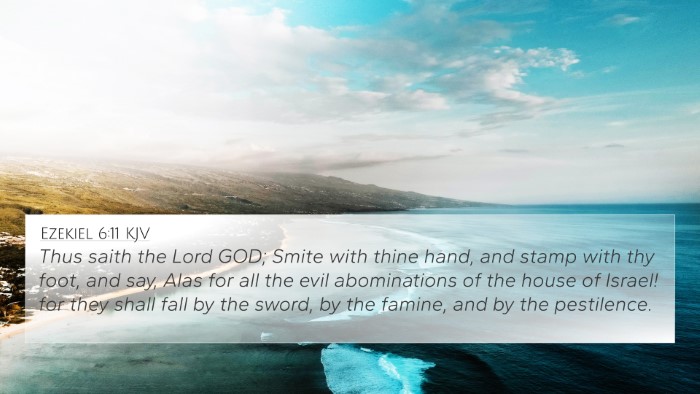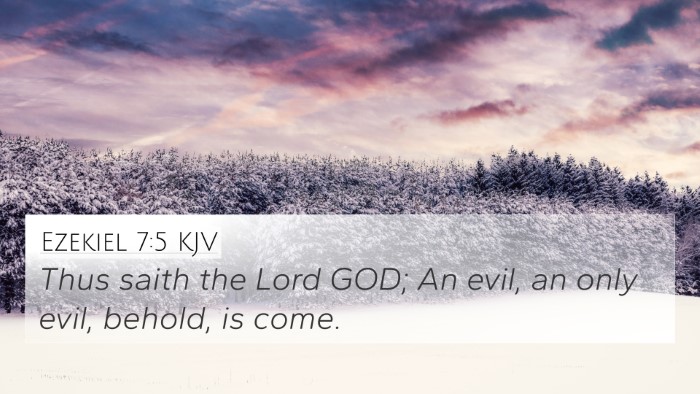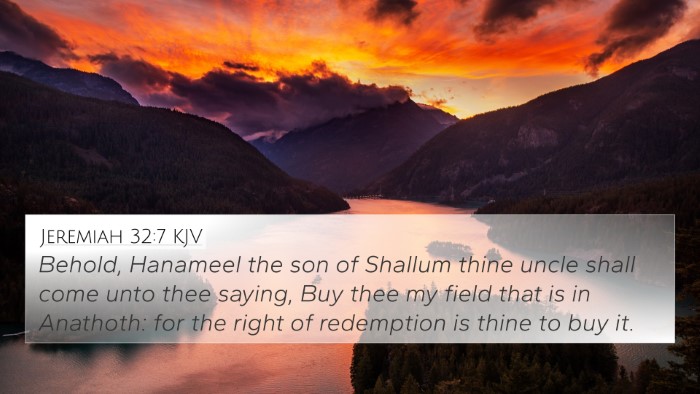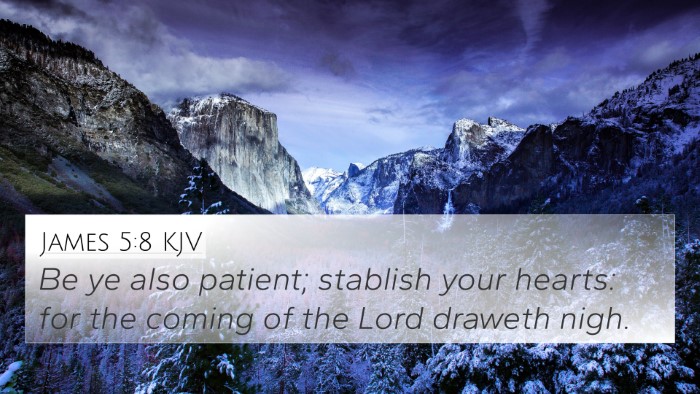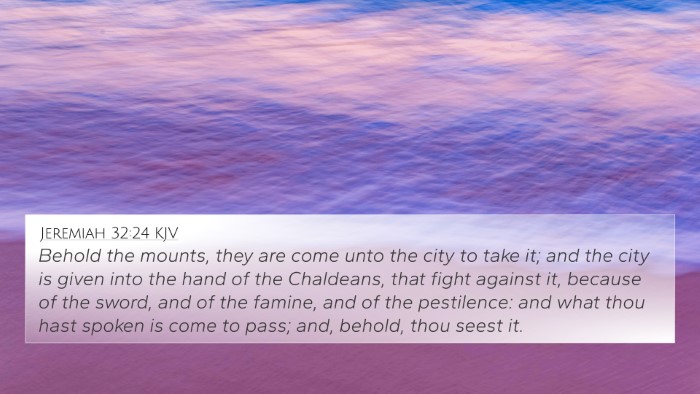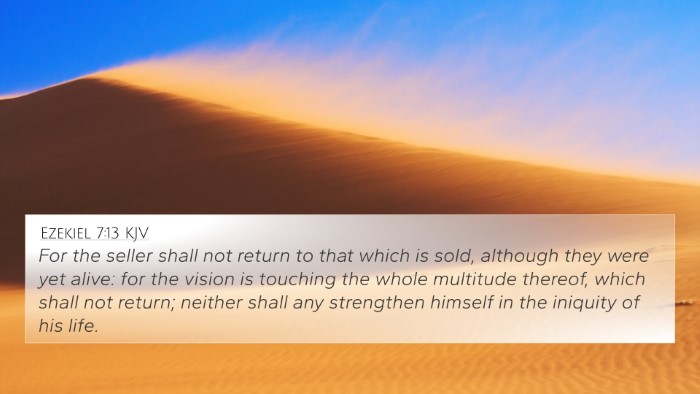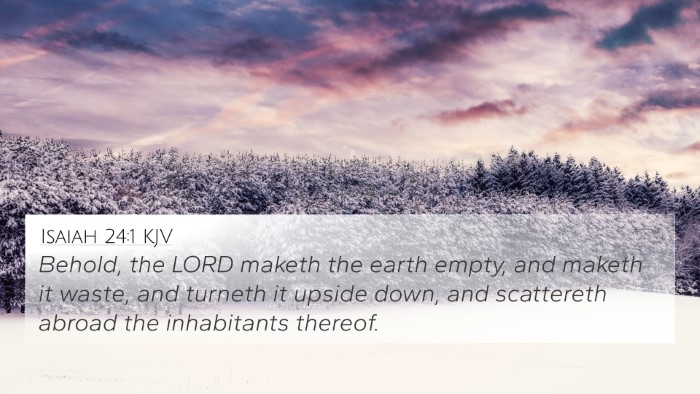Ezekiel 7:12: Understanding the Dimensions of Judgment
Ezekiel 7:12 reads, "The time has come, the day draws near. Let not the buyer rejoice, nor the seller mourn, for wrath is upon all the multitude." This verse serves as a poignant reminder of the impending judgment that looms over the people of Israel due to their transgressions against God. The context of this passage encapsulates the themes of judgment, social injustice, and divine retribution.
Drawing from the insights of renowned public domain commentaries, we can discern several layers of meaning in this critical scripture. Below is a synthesized exploration of its implications, combined from the teachings of Matthew Henry, Albert Barnes, and Adam Clarke.
Contextual Analysis
This chapter in Ezekiel presents a prophetic warning to the inhabitants of Jerusalem. The social and economic conditions at the time are highlighted, showing a community engrossed in their affairs, oblivious to the serious consequences of their unfaithfulness. The buyers and sellers mentioned represent the everyday lives of the people, oblivious to the spiritual decay surrounding them.
Theological Insights
-
Matthew Henry emphasizes that the merchants' sorrow and the buyers' joy are juxtaposed to illustrate the futility of earthly pursuits when divine judgment is imminent. He reflects on the theme that no earthly gain can console those under God’s wrath.
-
Albert Barnes elaborates on the economic aspects, pointing out that in times of divine judgment, normal interactions like commerce become insignificant. He posits that the message serves to remind individuals focused on material wealth that such concerns will vanish in the face of divine wrath.
-
Adam Clarke adds depth by elucidating that the phrase "the day draws near" signifies the proximity of fulfillment of prophecy. This denotes a time of urgent self-reflection for the people, who must recognize the severity of their spiritual state.
Thematic Connections
The themes found in Ezekiel 7:12 resonate throughout Scripture, showcasing a larger biblical narrative regarding divine justice and human folly. This verse connects with various other scriptures, highlighting the interconnected nature of biblical texts. Below are thematic connections and cross-references:
Bible Verse Cross-References
- Ezekiel 18:30: "Therefore I will judge you, O house of Israel, everyone according to his ways, says the Lord God. Repent, and turn from all your offenses..." - This verse emphasizes the need for repentance amidst impending judgment.
- Amos 8:11-12: "Behold, the days come, says the Lord God, that I will send a famine in the land..." - Like Ezekiel, Amos warns of a spiritual famine due to disobedience.
- Luke 17:26-30: "Just as it was in the days of Noah, so will it be in the days of the Son of Man..." - A New Testament perspective on societal unawareness leading to catastrophic judgment.
- James 5:1-3: "Come now, you rich, weep and howl for your miseries that are coming upon you!" - Similar warnings related to the pursuit of wealth during divine judgment.
- Hebrews 10:31: "It is a fearful thing to fall into the hands of the living God." - This verse echoes the seriousness of the wrath mentioned in Ezekiel.
- Romans 2:6-8: "He will repay each one according to his works: to those who by perseverance in doing good seek glory, honor, and immortality..." - A reminder of the judgment based on actions.
- Proverbs 11:4: "Riches do not profit in the day of wrath, but righteousness delivers from death." - Points to the futility of wealth in the face of divine judgment.
Applications for Today's Believers
The message of Ezekiel 7:12 is timeless. For contemporary believers, it serves as a crucial reminder to evaluate priorities. Are we as a society overly fixated on material gain at the expense of our spiritual health? Just as the prophet warned the people of his day, modern audiences are called to a self-assessment regarding faithfulness to God's commandments.
Understanding the interconnectedness of scripture can enhance one's study. Utilizing tools like a Bible concordance or Bible cross-reference guide can aid in exploring these connections further. Thematic Bible verse connections require a willingness to delve deeper into God’s word, facilitating a richer spiritual life.
Conclusion
In conclusion, Ezekiel 7:12 serves as a poignant articulation of the consequences of unrepentance and the nature of divine judgment. Through the lens of various commentaries, we gain a multi-faceted understanding of this verse within the broader biblical context. By engaging in cross-referencing Biblical texts, believers can draw compelling parallels and deepen their spiritual insights, ultimately leading to a more robust faith.

